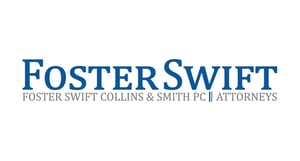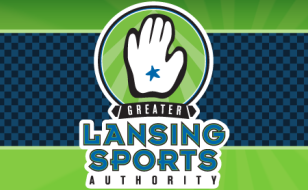
Chris Holman welcomes back Anthony M. Dalimonte, Attorney, Foster Swift Collins & Smith PC, Southfield, MI, and a half dozen other sites across Michigan.
Watch Anthony and Chris discuss the current hot topic for colleges, universities, and today's athletes N.I.L. in this YouTube video shared below:
Chris and Anthony discuss the topic: NIL - Name Image Likeness
1. Tony, Name, image, and likeness in college athletics has been a topic that has gained significant attention in the last few years. Could you explain to our listeners what exactly name, image, and likeness mean and some background of how we got here?
Absolutely. Name, image, and likeness, often abbreviated as NIL, refers to the rights of individuals, particularly college athletes, to have control and monetize their own personal brand. It compasses their name, voice, photograph, and other identifiable attributes that can be associated with their public persona.
Historically, it was an NCAA violation for a college athlete to money off of their name, image, and likeness. As for how we got here, in 2021 Supreme Court found that it was a violation of antitrust law to restrict college athletes from profiting off of their name, image, and likeness. As a result, the NCAA changed its rules regarding NIL and announced a new interim policy that permitted college athletes to profit from their NIL. Per the NCAA’s policy, athletes and institutions must follow their state laws regarding NIL. To date, 32 states have passed NIL laws that are largely modeled off of California’s Fair Pay to Play Act.
2. Let’s dive into the details of Michigan’s NIL law. Can you provide us an overview of what Michigan’s NIL law looks like?
Sure, Michigan’s House Bill 5217 which went into effect December 31, 2022, provides that colleges and universities are prohibited from doing the following:
· preventing student-athletes from competing in college athletics because they earn compensation from an NIL deal.
· Preventing a student-athlete from obtaining professional representation
· Paying a student-athlete compensation directly for the use of their NIL rights
· Revoking or reducing a student-athlete’s scholarship because they enter into an NIL deal
Now, the student-athlete has obligations they must comply with. Generally, the student-athlete can’t:
· Advertise for a sponsor that creates a conflict with a sponsor of the college
· Athletes are required to disclose the NIL opportunities or contract that hope to enter into at least 7 days before entering into that contract.
· Student-athletes are not granted any right to use the intellectual property, logos, or copyright of their universities
· And they are required to follow their university’s academic requirements, team rules, and disciplinary standards.
In addition, schools are developing their own NIL policies which student-athletes would be required to comply that may be more restrictive than the state’s law.
And then there’s the NCAA regulations. Schools/student-athletes must comply with the NCAA’s interim policy as well as any guidance published by the NCAA.
3. We have lots of businesses who listen to this show. What advice would you give to businesses looking to navigate this new landscape and establish partnerships with student-athletes?
Well, I think the new NIL rules provide a fantastic opportunity for businesses looking to explore new ways of marketing their products, especially in areas where there is very strong support for particular schools student-athletes, or sports.
From a legal perspective, it is important to make sure you have a well-drafted contract that clearly outlines the rights and obligations of both parties, which includes permitted uses of the individual’s name, image, and likeness, compensation terms, the duration of the contract, things like that.
I think there’s also the added element of compliance as well. You want to make sure you’re compliant with Michigan’s laws, the NCAA regulations, and the university’s NIL policy, to the extent there is one, so that both the business and the student-athlete can reach a mutually beneficial arrangement without jeopardizing eligibility for the athlete.
4. Before we wrap up, can you share your thoughts on the future of NIL? What trends or developments do you foresee?
This is an area that continues to evolve, almost daily. There are lots of unknowns.
For example, we still have an interim NCAA NIL policy, and its unclear whether the NCAA will issue a formal policy. And we have a patchwork of different NIL laws across the country. One huge question is whether there will be federal legislation on the issue. As of right now, there hasn’t been significant momentum to push a federal bill through Congress but there are several federal bills that have been introduced. In fact, on March 29, 2023, Congress held a hearing on NIL for the for the first time in over two years to discuss issues surrounding a federal NIL standard.
And from a legal perspective, there’s a case right now in the 3rd Circuit Court of Appeals, Johnson v NCAA where the issue is whether the NCAA can be considered a joint employer of athletes under the Fair Labor Standards Act. Which, in essence, means that they are deciding whether college athletes can be considered employees. This will obviously have huge implications the NCAA and college athletics as a whole.
» Visit MBN website: www.michiganbusinessnetwork.com/
» Subscribe to MBN’s YouTube: www.youtube.com/channel/UCqNX…
» Like MBN: www.facebook.com/mibiznetwork
» Follow MBN: twitter.com/MIBizNetwork/
» MBN Instagram: www.instagram.com/mibiznetwork/
» Subscribe to MBN’s YouTube: www.youtube.com/channel/UCqNX…
» Like MBN: www.facebook.com/mibiznetwork
» Follow MBN: twitter.com/MIBizNetwork/
» MBN Instagram: www.instagram.com/mibiznetwork/













